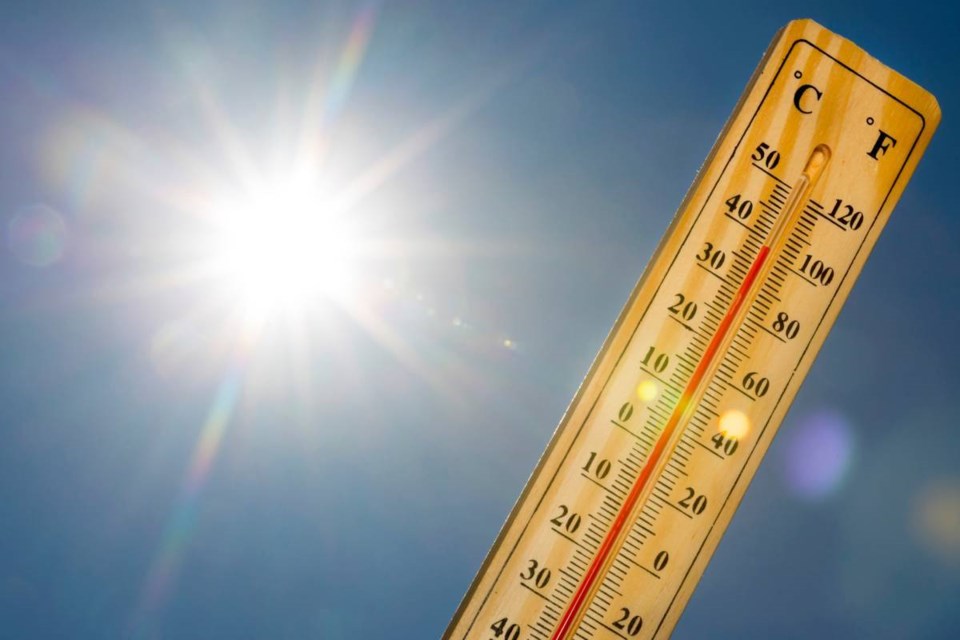Environment and Climate Change Canada issued a heat warning within the Public Health Sudbury and Districts (PHSD) service area Monday, in anticipation of daytime highs 30 C or above Tuesday and Wednesday.
To prepare for this heatwave, PHSD has shared a list of tips for residents to protect their health and that of those in their care.
"Although some individuals are at higher risk, anyone can suffer from heat-related illnesses," said Burgess Hawkins, PHSD manager. "Everyone should take precautions."
Prolonged exposure to high levels of heat can lead to dehydration and illnesses such as heat stroke, heat exhaustion, heat fainting, heat edema (swelling of hands, feet and ankles), heat rash, heat cramps (muscle cramps), and even death, said the health unit's press release.
Symptoms of these heat-related illnesses include fainting, nausea or vomiting, rapid breathing and heartbeat, extreme thirst, and decreased urination with unusually dark yellow urine.
Individuals the most at risk include older adults, infants and young children, pregnant women, people with chronic illnesses, the homeless, those who use alcohol or illicit drugs, as well as those who work or exercise in the heat.
Those who take medications or have a health condition should consult their doctor or pharmacist to determine if they are at increased risk from the heat and follow their recommendations.
Anyone who experiences heat-related symptoms is encouraged to contact a family member, friend or health care professional. Should symptoms reach the point of an emergency, call 9-1-1.
To prevent heat-related illness, PHSD recommends the following:
- While maintaining physical distancing, frequently visit or check-in on neighbours, friends, and older family members, especially those who are chronically ill, to make sure that they are cool and hydrated.
- Drink plenty of cool liquids, especially water, before you feel thirsty to decrease the risk of dehydration. Thirst is not a good indicator of dehydration.
- Babies under six months of age do not need extra water in hot weather, however, you might need to feed them more often. Follow your baby's feeding cues. Encourage babies over six months and children to drink frequently. Offer the breast or if not breastfeeding, offer water.
- Reschedule or plan outdoor activities during cooler parts of the day.
- Wear loose-fitting, light-coloured clothing made of breathable fabric.
- Never leave people or pets in your care inside a parked vehicle or direct sunlight - even if the windows are down.
- Take a break from the heat by spending a few hours in a cool place.
- Take a cool bath or shower periodically, or cool down with cool, wet towels.
- Prepare meals that do not need to be cooked in your oven.
- Block sun out by closing awnings, curtains, or blinds during the day.
- Avoid sun exposure. Shade yourself by wearing a wide-brimmed, breathable hat, or using an umbrella.
Heat warnings are issued when the forecast rises for two days to 29 C or above during the day and 18 C or above at night, or the humidex 36 C or above.
The areas affected by this warning are Greater Sudbury and the surrounding area, West-Nipissing and French River, Markstay-Warren and St. Charles, Chapleau and Missinaibi Lake, as well as Gogama and Foleyet.
Find more information on beating the heat in apartment buildings, keeping your pets safe, doing outdoor activities in heat and smog, and keeping your children safe during hot weather on the PHSD website.
